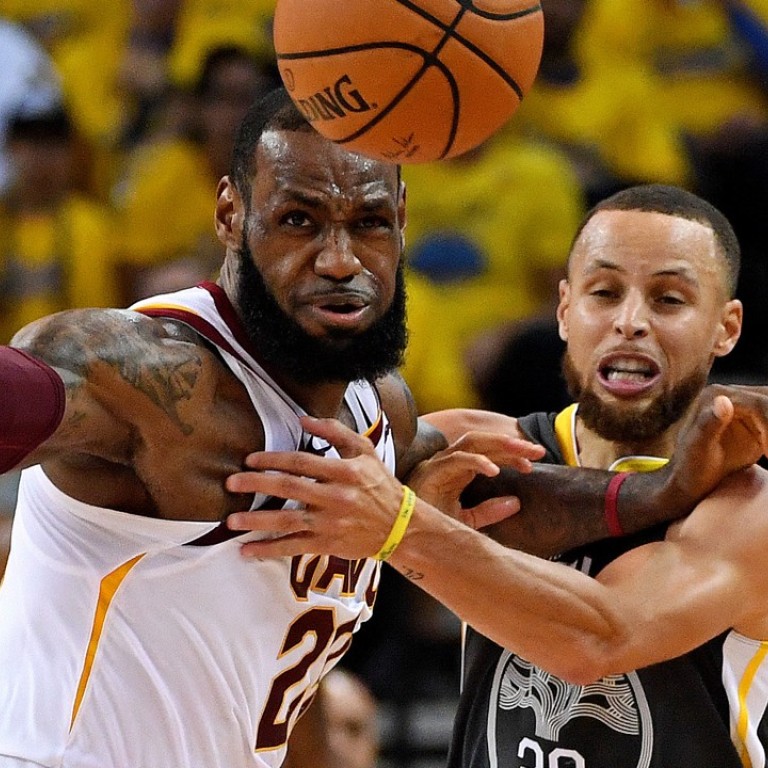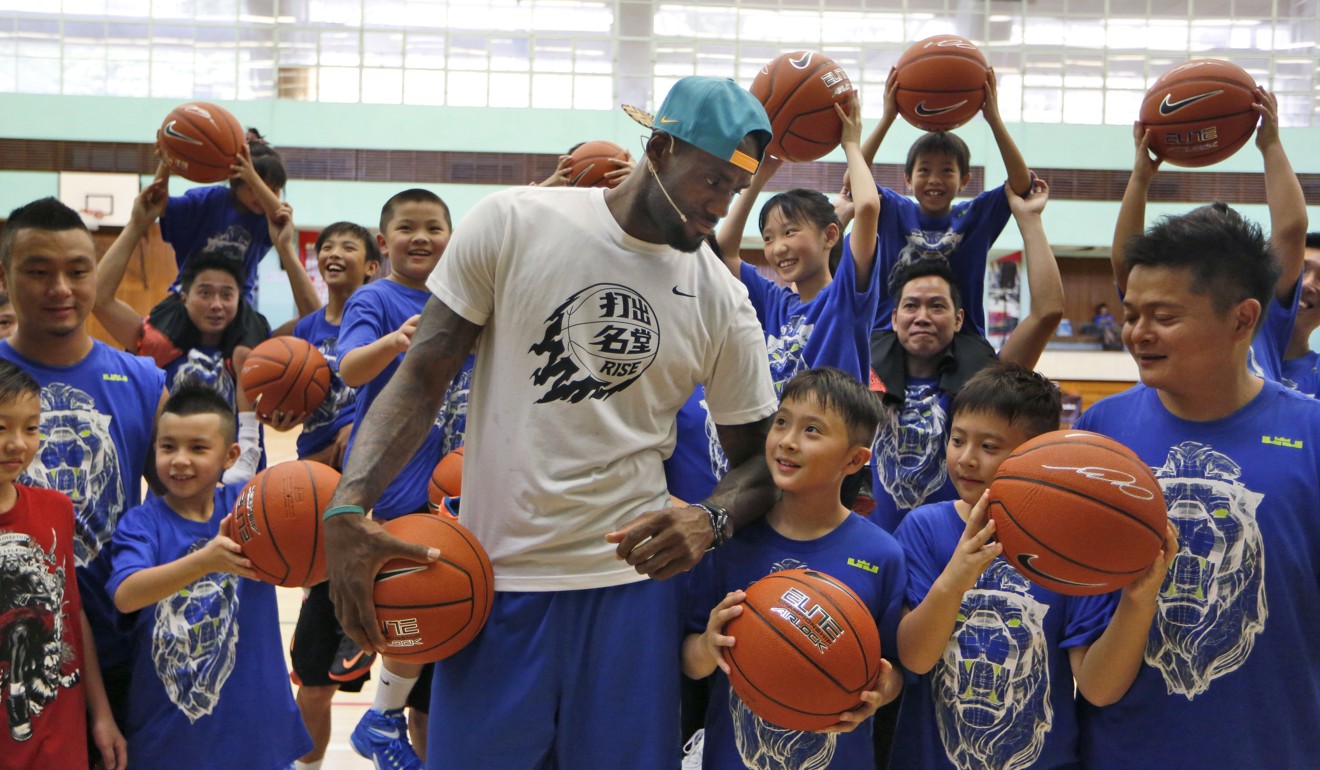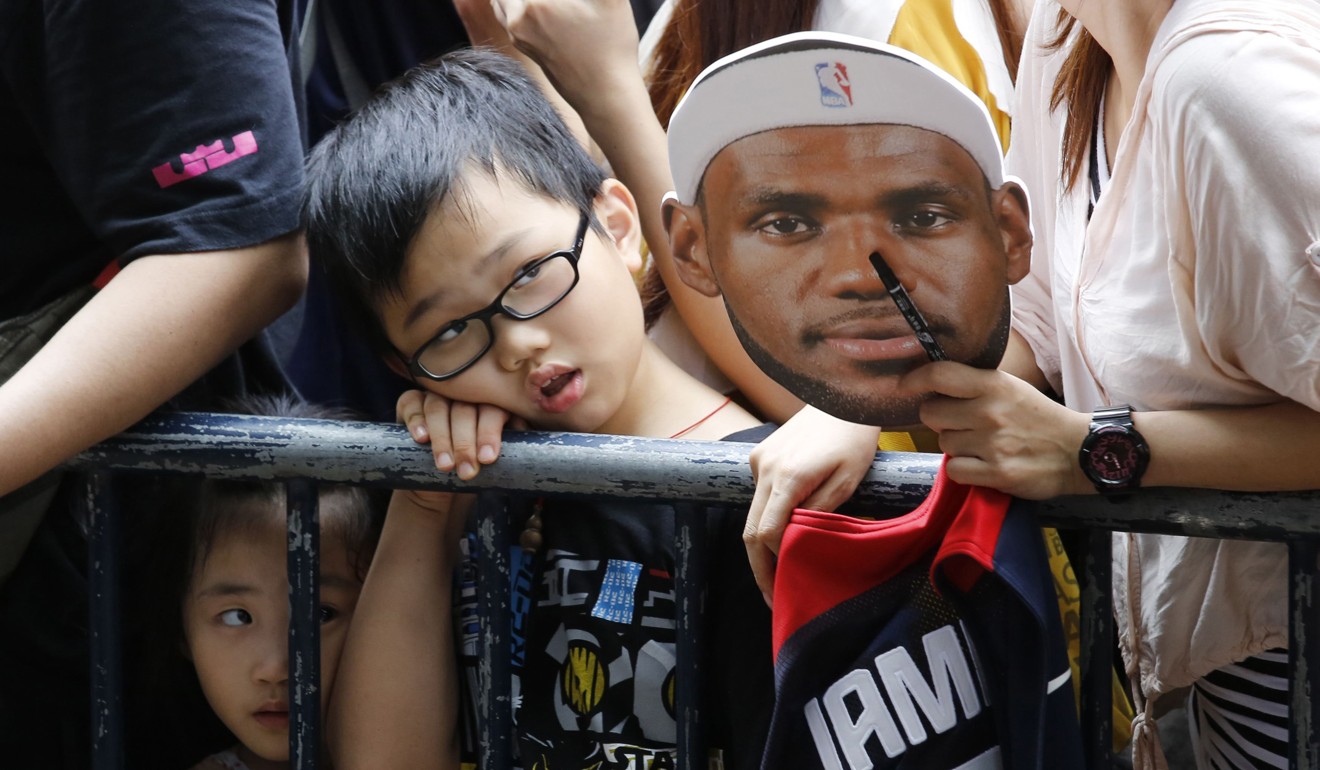
Why NBA star LeBron James is a player in the US-China trade war discussions
The US National Basketball Association has more than a dozen media partnerships and licensing agreements in China, including a five-year, US$500 million pact with Tencent
While LeBron James and Stephen Curry are battling on the basketball court in the US National Basketball Association (NBA) finals, they’re also on the front court of the US-China trade tussle.
That’s because American licensing activities in China have been increasing, and deals by the NBA and other sports, entertainment and software groups have helped fuel a trade surplus – in services, at least – between the US and China.
Beijing warns Washington: trade promises are off if US imposes tariffs
The overall gap between what China ships to the US and what it imports is one of US President Donald Trump’s chief targets in the trade fight. The US$38.5 billion advantage the services trade provided the US in 2017 barely offset a 10th of that wider deficit, but it’s still a key component in the relationship between the world’s two-biggest economies.
That’s why James and his Cleveland Cavaliers and Curry’s Golden State Warriors are important players.
The NBA has more than a dozen media partnerships and licensing agreements in China, including a five-year, US$500 million pact with Tencent Holdings, the country’s biggest social-network and online-gaming company.
Subscribers to the Tencent Sports app can watch an array of content on their smartphones – including live broadcasts of the basketball championship series – in exchange for agreeing to ad streaming or paying for packages that typically cost US$3-10 a month.
Last year’s NBA finals, which featured the same two teams, racked up 175 million views in China, where basketball has been growing in popularity.
Why White House approach to China talks may backfire
These sort of licensing pacts are a small but key part of the US services trade, which also benefits from big-spending Chinese tourists and students.
Last school year, about one-third of foreigners studying in the US were from China, according to the Institute of International Education, a proportion that has tripled over 10 years.

“The US has a great advantage in the services sector,” said Gai Xinzhe, an analyst at Bank of China’s International Institute of Finance in Beijing.
“It’s almost certain that China’s services deficit with the US will keep widening, especially with agreements calling for China to significantly increase purchases of American goods and services.”
Is it time Beijing ditched its ‘Made in China 2025’ strategy?
While the US now has Europe and other allies in its sights over trade, the fight with China continues to simmer. Trump seemed to renege on an agreement to put the trade war on hold last week, saying he will continue with a plan to slap tariffs on US$50 billion of Chinese imports.
If the US acts on that threat, China says it will withdraw all the commitments on trade that it’s made so far.

The disagreement has its root in US grievances over the deficit and China’s intellectual property transgressions. Chinese telecommunications company ZTE has been drawn into the tussle, with its punishment for violating US sanctions – a seven-year ban that could put it out of business – a bargaining chip in the to and fro between the two countries.
China ‘offered to buy US$70 billion of US products to end tariffs’
In fact, before ZTE became a target, much of its US image was built through NBA partnerships. The Shenzhen-based company has been an official equipment or telecom sponsor of a variety of teams, including the New York Knicks, Chicago Bulls, Houston Rockets – and both Curry’s Warriors and James’s Cavaliers.
During China’s Lunar New Year holiday in February, Cleveland’s Quicken Loans Arena was filled with traditional red lanterns, banners and LED screens wishing “Happy Lunar New Year” in Mandarin, compliments of ZTE and Tencent.

